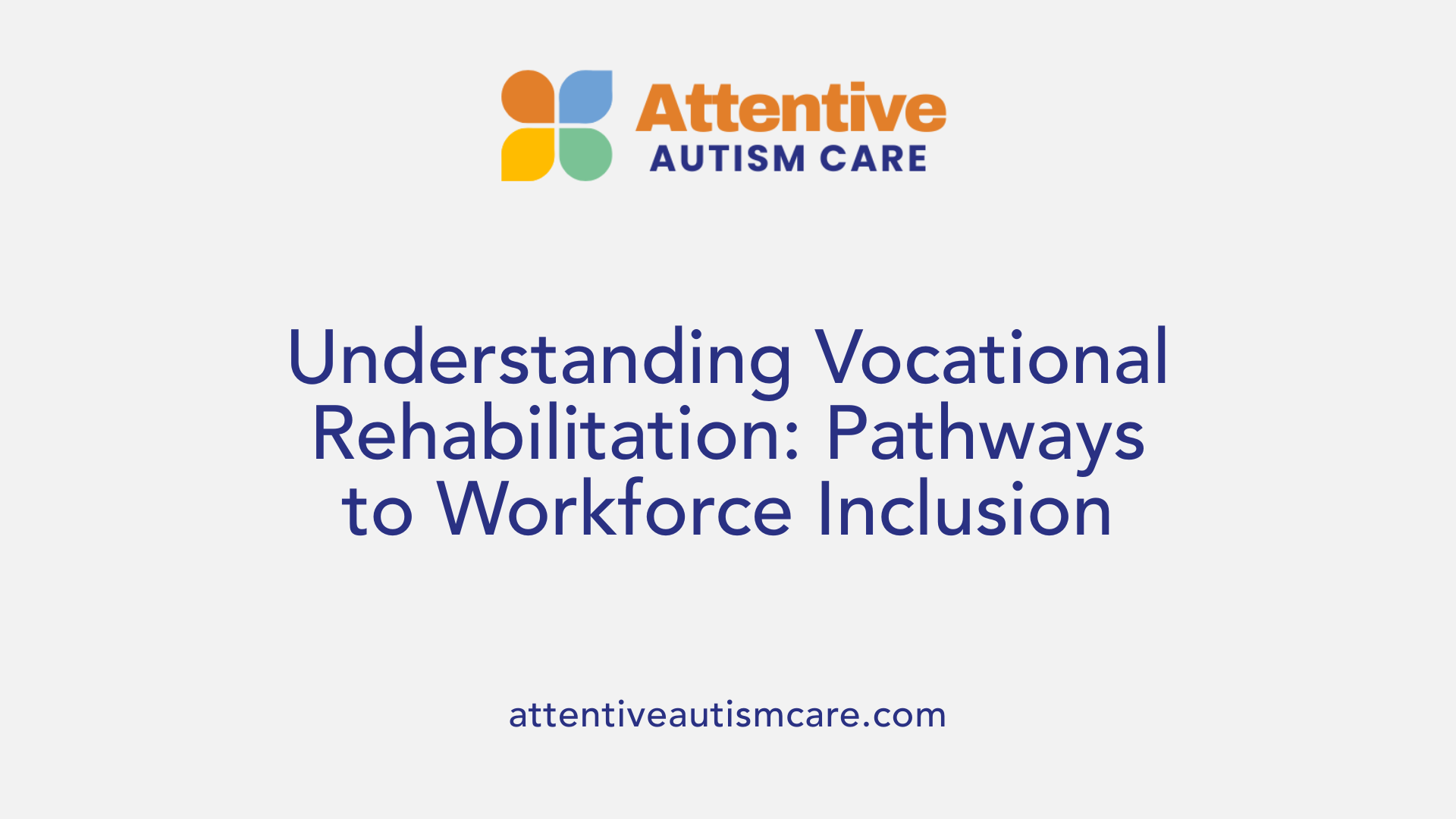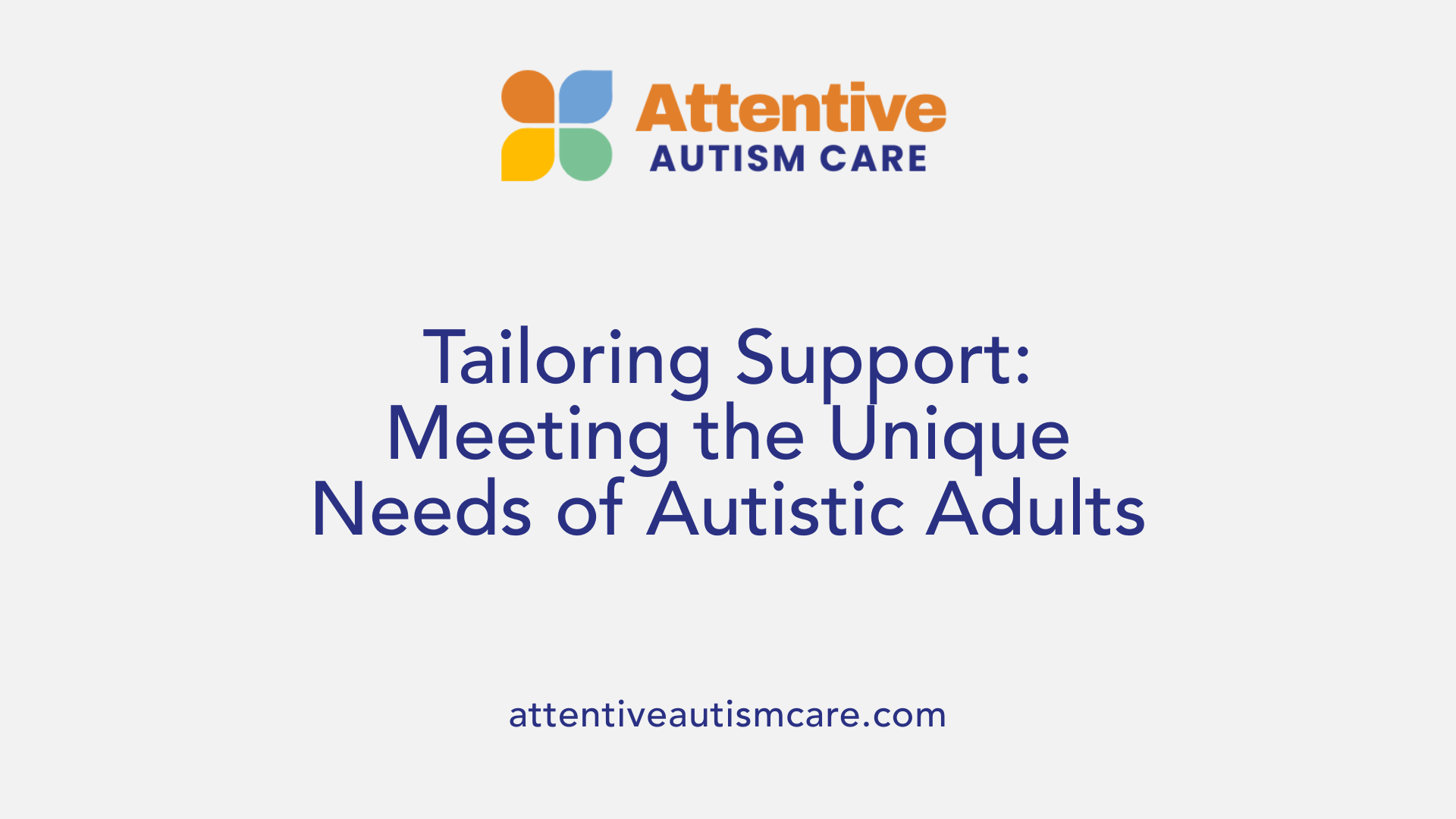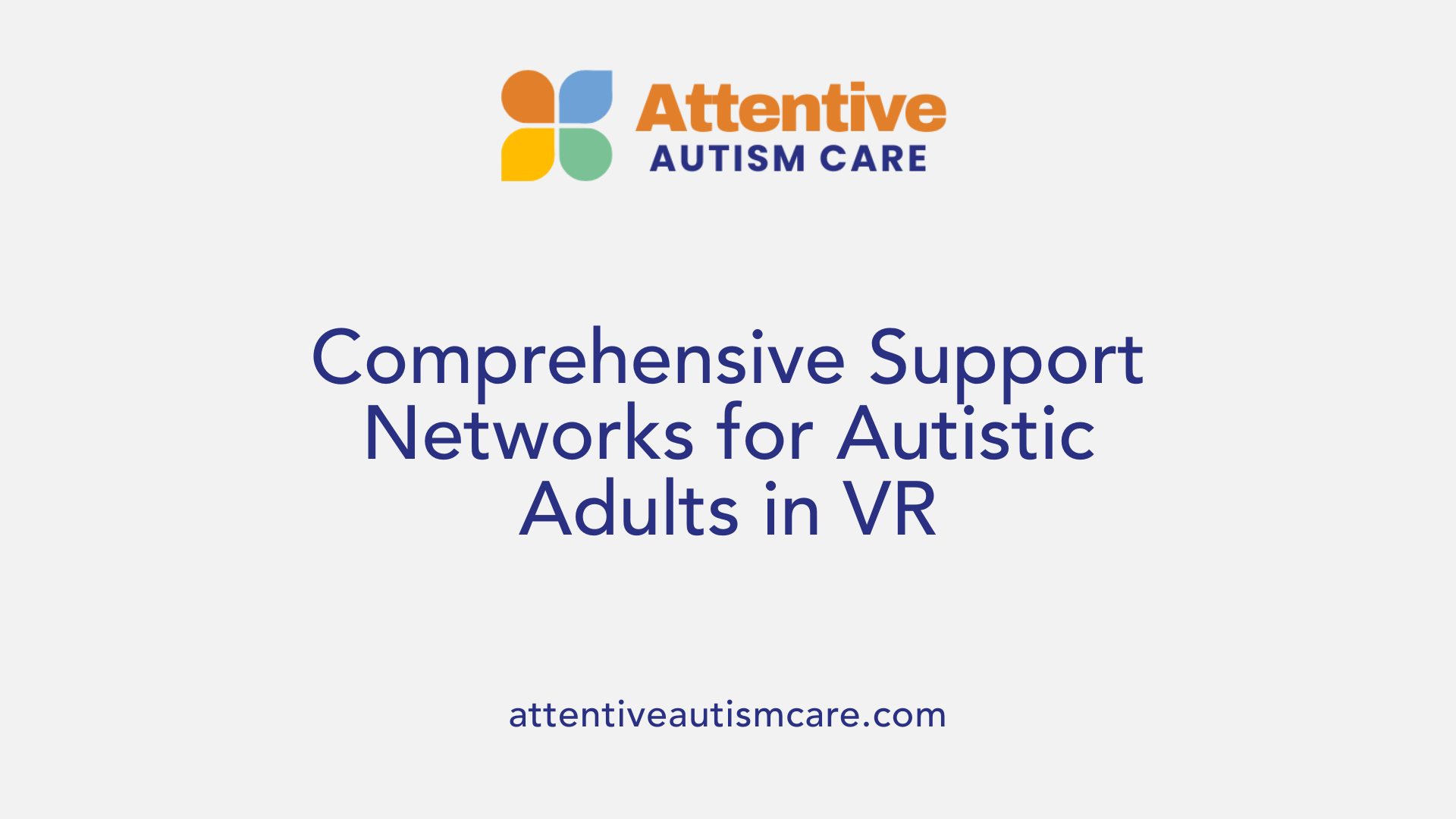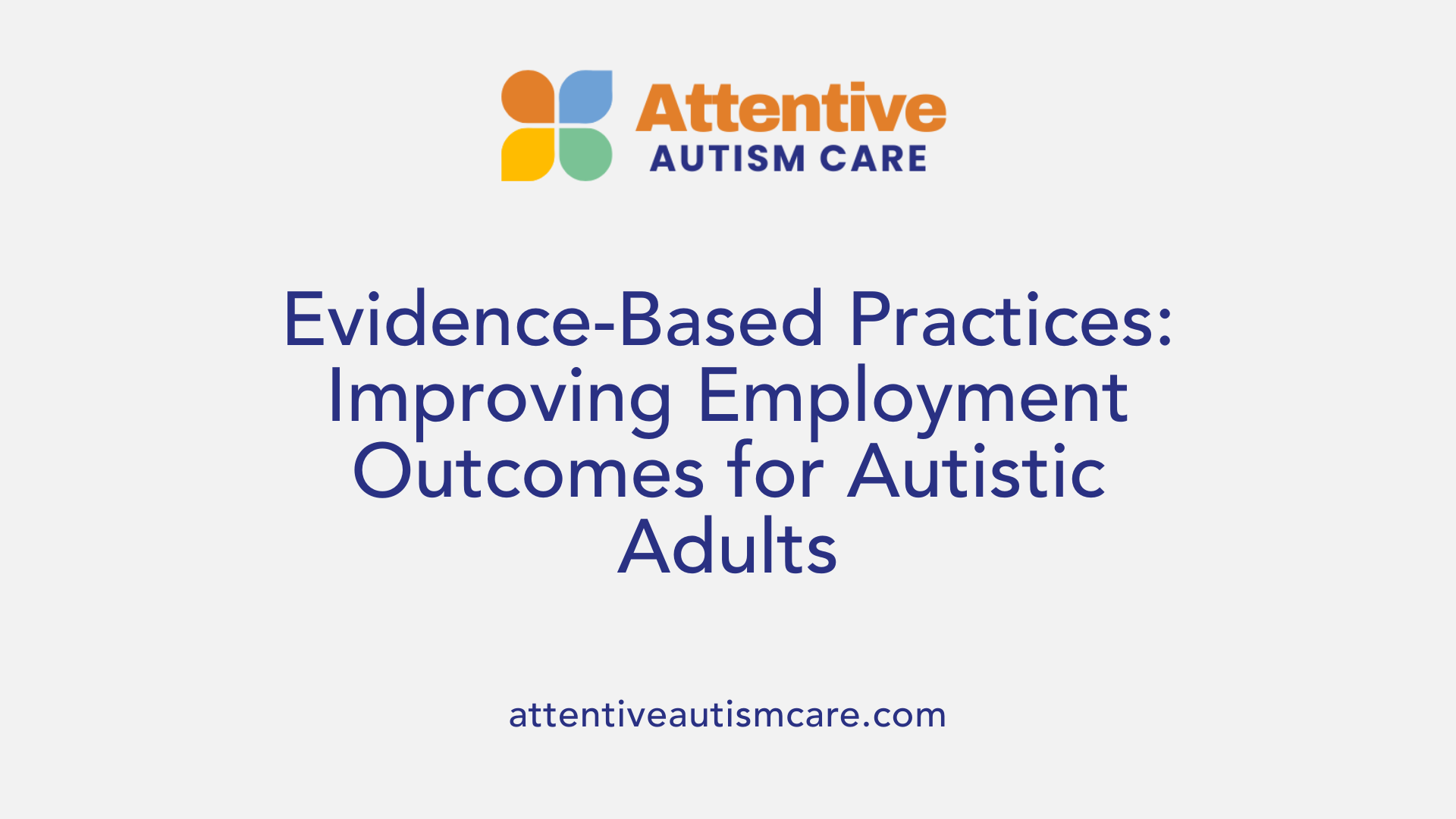Supporting Autistic Adults in Vocational Rehabilitation
Enhancing Employment Opportunities for Autistic Adults Through Effective Vocational Support

Understanding the Path to Employment for Autistic Adults
Autistic adults face unique challenges and opportunities in the journey toward meaningful employment. With tailored support and comprehensive programs, vocational rehabilitation services can significantly improve employment outcomes, foster independence, and enhance quality of life for individuals on the autism spectrum. This article explores the characteristics, barriers, support mechanisms, and research-backed strategies designed to empower autistic adults in vocational settings.
Overview of Vocational Rehabilitation and Its Role

What are the fundamentals of vocational rehabilitation (VR)?
Vocational Rehabilitation (VR) is a federal and state-funded program aimed at helping individuals with disabilities secure and maintain employment. It provides a structured pathway to independence by offering a range of services tailored to meet each person's unique needs. The program evaluates eligibility, develops employment plans, and offers ongoing support to ensure success in the workforce.
Who are the primary populations served, including those on the autism spectrum?
VR primarily assists people with physical disabilities, mental health conditions, sensory impairments such as vision loss, and developmental disabilities including autism spectrum disorder (ASD). Autistic adults often face particular challenges like social interactions and sensory sensitivities, making specialized support essential for workforce integration. The program also focuses on transition-age youth, helping students prepare for employment after graduation.
What types of services are provided through VR?
The services offered by VR are diverse and designed to address individual barriers to employment:
- Job search assistance and job coaching
- Education and skills training
- Assistive technology devices to aid in workplace tasks
- Independent living training
- Supports for transportation and workplace accommodations
- Supported employment and self-employment programs
These services aim to prepare individuals to find, secure, and sustain meaningful jobs.
How is eligibility determined, and what is the referral process?
Individuals can access VR services through multiple channels: self-referral, referrals from healthcare or mental health professionals, or referrals from schools and community organizations. Eligibility is generally based on having a disability that presents a substantial barrier to employment and demonstrating that VR services can help overcome these barriers.
Within 60 days of applying, a VR counselor reviews the application to determine eligibility. If eligible, clients typically meet with a counselor within 90 days to create an Individualized Plan for Employment (IPE). This detailed plan outlines specific goals and the services required, including training, job placement, and necessary accommodations.
Support programs for autistic adults in vocational rehabilitation
Support mechanisms for autistic adults include tailored services provided by the Division of Vocational Rehabilitation (DVR). These services involve reviewing medical and educational histories to facilitate employment placement and retention.
Funding options like the Developmental Disability (DD) Waiver provide personalized, home and community-based supports adapted through an individual service plan (ISP). The ISP addresses autism-related needs and may include assistive technology, case management, support provider training, and consumer-directed services.
Accessing these aids and supports, alongside benefits such as Supplemental Security Income (SSI), can significantly improve employment outcomes. Additional community resources, such as those offered by Autism Speaks, provide educational materials, advocacy tips, and tools to help adults with autism maintain employment and increase independence.
This comprehensive approach ensures autistic adults receive the customized assistance necessary for successful integration into the workforce.
Characteristics and Needs of Autistic Adults in Vocational Rehabilitation

What are the characteristics and needs of autistic adults in vocational rehabilitation?
Autistic adults participating in vocational rehabilitation (VR) often exhibit unique characteristics that require individualized and tailored support. Their strengths may include attention to detail, strong skills in specific areas, and persistence. However, they also face challenges such as social interactions, sensory sensitivities, and difficulties with communication.
Effective employment support involves creating personalized plans that align with each individual's interests, abilities, and career goals. Visual supports, communication aids, and sensory accommodations are frequently used to facilitate understanding and comfort in the workplace.
Support from a team that may include VR professionals, family members, and employers helps address specific needs, including skill development and workplace integration. Developing employment plans that respect their preferences and abilities maximizes success.
Managing potential burnout is crucial, as symptoms like exhaustion, sensory overload, and mental health issues can hinder job stability. Strategies such as adjusting workload, offering flexible schedules, and providing ongoing support help mitigate these risks.
Access to resources like the Developmental Disability Waiver and supported employment services promotes community integration and job retention. Promoting independence, ensuring clear communication, and providing appropriate accommodations are vital components for helping autistic adults thrive in vocational settings.
Overall, understanding the diverse characteristics and needs of autistic adults enables VR services to be more effective in supporting sustainable employment and improved quality of life.
Supporting Systems and Program Offerings

What support mechanisms and program offerings are available to assist autistic adults in vocational rehabilitation?
Autistic adults seeking employment can benefit from a variety of support systems provided through vocational rehabilitation programs. The Division of Vocational Rehabilitation (DVR) plays a central role by evaluating each individual’s medical and educational background to tailor employment services. This personalized approach helps identify suitable career paths while addressing specific challenges associated with autism.
Funding options also support employment efforts, such as the Developmental Disability (DD) Waiver. This program offers customized, community-based supports that are detailed in an individual service plan (ISP). These supports include assistance with job placement, ongoing job coaching, and access to assistive technology.
Additional support mechanisms include case management services, training programs for support providers, and consumer-directed services that empower individuals to take an active role in managing their employment journey. For financial stability, benefits like Supplemental Security Income (SSI) are available, although the application process can be detailed and time-consuming.
Community organizations such as Autism Speaks provide valuable resources including advocacy, educational materials, and guides to navigating employment and adult services. These tools are designed to enhance independence and support sustained employment for autistic adults.
Overall, the combined efforts of federal, state, and community programs create a comprehensive support network aimed at improving employment outcomes for autistic individuals.
Research Insights and Program Effectiveness
 Various studies have demonstrated that specialized vocational programs tailored to the needs of autistic adults lead to better employment results. These programs often involve individualized plans and multidisciplinary teams that focus on each person's strengths and interests. Resources such as supported employment services and assistive technologies play a significant role in helping autistic adults succeed in the workforce.
Various studies have demonstrated that specialized vocational programs tailored to the needs of autistic adults lead to better employment results. These programs often involve individualized plans and multidisciplinary teams that focus on each person's strengths and interests. Resources such as supported employment services and assistive technologies play a significant role in helping autistic adults succeed in the workforce.
Success stories highlight individuals gaining skills, confidence, and independence through programs that include social skills training, workplace accommodations, and ongoing support. For example, programs like Project Search-ASD (PS-ASD) have shown effectiveness in teaching job-related and social skills, with many participants maintaining employment over time.
However, research also points to persistent challenges. Sensory sensitivities, burnout, societal misconceptions, and a lack of workplace accommodations can hamper employment opportunities. Addressing these barriers requires flexible, personalized interventions and systemic support from employers and policymakers.
Future research emphasizes the need for more international studies, ongoing development of tailored programs, and increased private sector involvement. These efforts aim to create more inclusive work environments and expand employment access for autistic adults.
Fostering a More Inclusive Workforce
Supporting autistic adults in vocational rehabilitation is essential for fostering an inclusive, diverse workforce that appreciates unique talents and contributions. By implementing tailored programs, improving employer awareness, and continuously refining support strategies based on research, society can unlock the full potential of autistic individuals. Collaboration among agencies, employers, and community organizations is vital to overcoming barriers and creating workplaces where autistic adults not only find employment but thrive professionally and personally, enhancing overall community integration and well-being.
References
- Vocational Rehabilitation - The Autism Community in Action
- Vocational Rehabilitation | Autism Speaks
- Vocational Rehabilitation Program - Texas Workforce Commission
- Adult Programs | Florida Department of Education
- What have we learned about Vocational Rehabilitation and Autism?
- Special Populations - Georgia Vocational Rehabilitation Agency
- Vocational Rehabilitation | The Arc's Autism Now Center
- Vocational Rehabilitation - Adults - Texas Workforce Commission
- Vocational Rehabilitation: State: Our Partners - HANDS in Autism




































































































